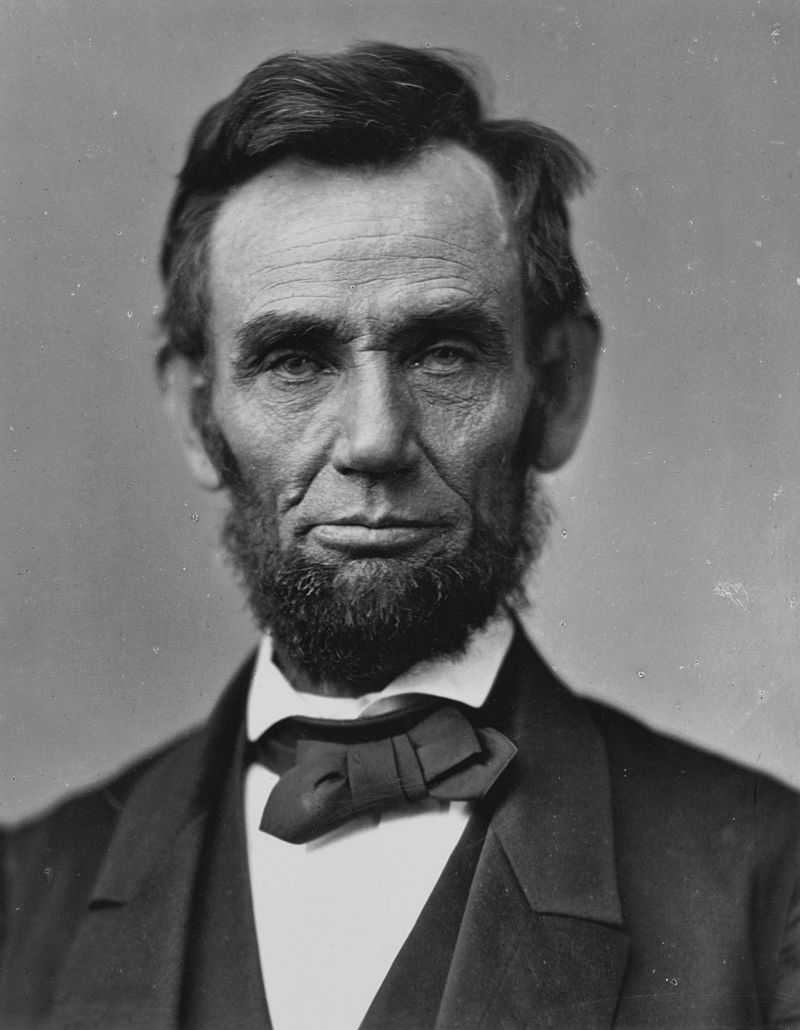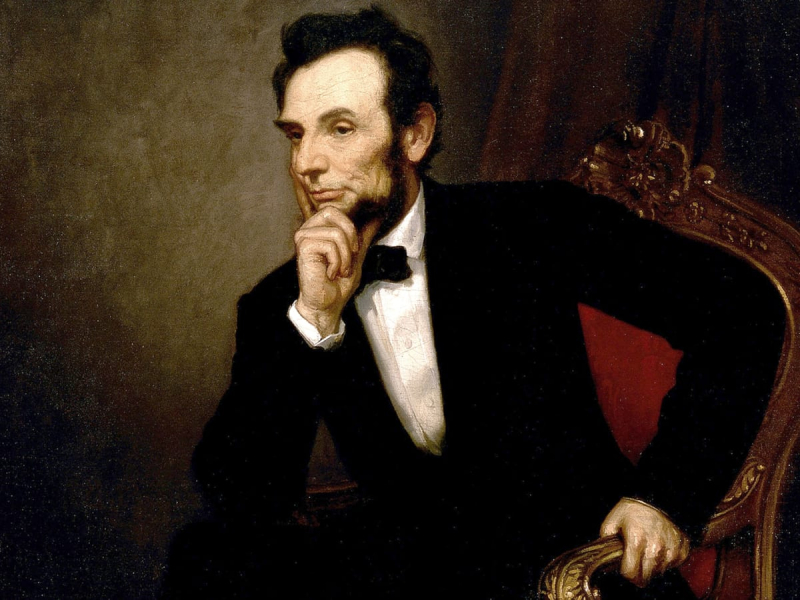Abraham Lincoln
Abraham Lincoln (February 12, 1809 - April 15, 1865) was the 16th President of the United States from 1861 until his assassination in 1865. Lincoln led the country through the American Civil War, preserving the Union, abolishing slavery, strengthening the federal government, and modernizing the American economy.
Lincoln was born in a log cabin in Kentucky into poverty and raised on the frontier, primarily in Indiana. He educated himself and went on to become a lawyer, Whig Party leader, Illinois state legislator, and United States Congressman from Illinois. In 1849, he returned to his law practice, but he was irritated by the Kansas-Nebraska Act of 1854, which opened up additional lands to slavery. In 1854, he reentered politics as a leader of the new Republican Party, and in the 1858 Senate campaign debates against Stephen Douglas, he reached a national audience. In 1860, Lincoln ran for President and won by sweeping the North. Southern states began seceding from the Union as pro-slavery elements saw his election as a threat to slavery. The newly formed Confederate States of America began seizing federal military bases in the south around this time. The Confederate States of America attacked Fort Sumter, a United States fort in South Carolina, just over a month after Lincoln took office. Following the bombardment, Lincoln called in reinforcements to put down the rebellion and restore the Union.
Lincoln, a moderate Republican, had to navigate a fractious array of factions from both the Democratic and Republican parties. His War Democrats and Radical Republicans allies demanded harsh treatment of the Southern Confederates. Lincoln was despised by anti-war Democrats (dubbed "Copperheads"), and irreconcilable pro-Confederate elements plotted his assassination. He kept the factions in check by taking advantage of their mutual animosity, carefully distributing political patronage, and appealing to the American people. His Gettysburg Address became known as one of the most powerful and influential statements of American national purpose. Lincoln oversaw the war effort's strategy and tactics, including the selection of generals, and implemented a naval blockade of the South's trade. In Maryland, he suspended habeas corpus and avoided British intervention by defusing the Trent Affair. In 1863, he issued the Emancipation Proclamation, which freed slaves in the states "in rebellion." It also instructed the Army and Navy to "recognize and maintain such persons' freedom" and to accept them "into the armed service of the United States." Lincoln also lobbied border states to abolish slavery, and he promoted the Thirteenth Amendment to the United States Constitution, which, when ratified, abolished slavery.
Lincoln ran a successful re-election campaign. He sought to heal the nation's wounds through reconciliation. On April 14, 1865, just days after the surrender of the Confederacy at Appomattox, he was attending a play with his wife Mary at Ford's Theatre in Washington, D.C., when he was fatally shot by Confederate sympathizer John Wilkes Booth. For his wartime leadership and efforts to preserve the Union and abolish slavery, Abraham Lincoln is remembered as a martyr and a national hero. Lincoln is frequently ranked as the greatest president in American history in both popular and scholarly polls.












